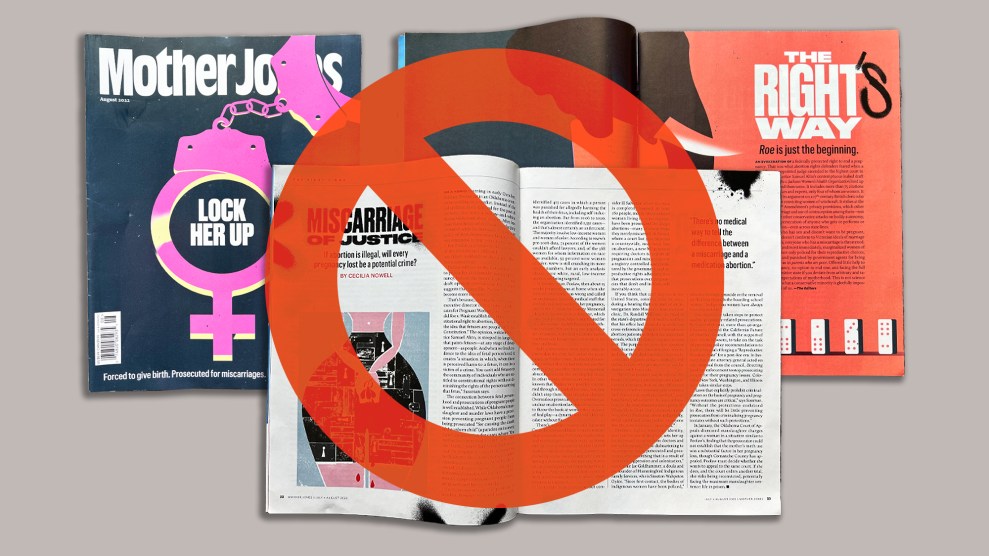
Beyond Black & White
Recent public debates about the role of race in American society tend to overlook a fundamental point: Race doesn’t so much take place in America as it is America. Instead of trying to answer the race question, we might acknowledge that the very categories of racial identity are constructions that erase the mestizo character of all racial makeups. Edited by Ishmael Reed, Multi-America: Essays on Cultural Wars and Cultural Peace, a collection of essays by journalists, academics, poets, and novelists, examines the shifting contours of U.S. racial and cultural identity. The book touches on everything from “post-whiteness” to Chicana feminism, and it reveals just how messy and deeply embattled the American cultural landscape continues to be. ! New York: Viking, 1997 (JK)
 Former Los Angeles Times reporter Itabari Njeri’s The Last Plantation: Color, Conflict, and Identity — Reflections of a New World Black describes the 1991 shooting death of a 15-year-old African-American by a Korean immigrant grocer in Los Angeles. Njeri uses this story as a jumping-off point to dig into the psychological underpinnings of interminority conflict. While the book centers on Njeri’s revealing interviews with members of the teenager’s family and a number of the key political players in L.A.’s overheated racial laboratory, it’s really about Njeri herself — her own mixed-race heritage, her dealings with anti-black racism, and ultimately her call for a “New World black” identity that acknowledges the transnational makeup of American blackness. What does it mean to be “black,” Njeri asks, when you are African, Arawak, French, English, and East Indian? ! New York: Houghton Mifflin, 1997 (JK)
Former Los Angeles Times reporter Itabari Njeri’s The Last Plantation: Color, Conflict, and Identity — Reflections of a New World Black describes the 1991 shooting death of a 15-year-old African-American by a Korean immigrant grocer in Los Angeles. Njeri uses this story as a jumping-off point to dig into the psychological underpinnings of interminority conflict. While the book centers on Njeri’s revealing interviews with members of the teenager’s family and a number of the key political players in L.A.’s overheated racial laboratory, it’s really about Njeri herself — her own mixed-race heritage, her dealings with anti-black racism, and ultimately her call for a “New World black” identity that acknowledges the transnational makeup of American blackness. What does it mean to be “black,” Njeri asks, when you are African, Arawak, French, English, and East Indian? ! New York: Houghton Mifflin, 1997 (JK)
 The Fugees’ Haitian-born, Brooklyn-raised rapper, singer, and guitarist Wyclef Jean performs in English, Spanish, and Haitian Creole on his solo album The Carnival. By mixing New York hip-hop with Haitian compas, Jamaican reggae, Martinican zouk, and Cuban son bolero, Jean creates a vibrant New World immigrant sound that unsettles fixed racial and national identities. ! RuffHouse Records, 1997 (JK)
The Fugees’ Haitian-born, Brooklyn-raised rapper, singer, and guitarist Wyclef Jean performs in English, Spanish, and Haitian Creole on his solo album The Carnival. By mixing New York hip-hop with Haitian compas, Jamaican reggae, Martinican zouk, and Cuban son bolero, Jean creates a vibrant New World immigrant sound that unsettles fixed racial and national identities. ! RuffHouse Records, 1997 (JK)
My America…or Honk if You Love Buddha is award-winning filmmaker Renée Tajima-Peña’s tale of her three-year road trip “in search of Asian America.” The film combines Tajima-Peña’s autobiographical narration with home movies, newsreels, archival footage, and interviews with a wide range of folks — from Victor Wong, an iconoclastic actor and former beatnik, to renowned civil rights activist Yuri Kochiyama. Tajima-Peña’s eye for irony serves the film well, particularly when she targets racist stereotypes: One of the film’s choice moments is the revelation that America’s “egg roll king,” the founder of Chung King Chinese Foods, was an Italian immigrant. ! For more information, contact the National Asian American Telecommunications Association, 346 9th St., San Francisco, CA 94103. (JF)
Will Americans ever create a truly race-neutral society? In Color-Blind: Seeing Beyond Race in a Race-Obsessed World, journalist and author Ellis Cose examines our past attempts, from desegregation to affirmative action, and lays out a prescription for the future. In a particularly provocative chapter (“Can a New Race Surmount Old Prejudices?”), Cose analyzes the movement to create new racial categories, arguing that broadening these categories is not a sure route to racial harmony. Cose isn’t afraid to talk frankly, and as the nation makes renewed attempts at a dialogue on race, we would do well to follow his lead. ! New York: HarperCollins, 1997 (JF)
Blacks & Jews, a documentary film by Alan Snitow and Deborah Kaufman, explores one of the most visible manifestations of America’s racial divide, the public antagonism between black and Jewish communities. The film re-examines some of the flash points of black-Jewish strife, such as the Crown Heights riots and the controversy surrounding the Nation of Islam, with commentary from both black and Jewish critics and scholars. ! For more information, call California Newsreel at (415) 621-6196. (Eds.)
 Mona in the Promised Land, an endearing book of fiction by Gish Jen, traces teenager Mona Chang’s travails as her family moves into the prosperous Jewish suburb of “Scarshill,” New York, in the late ’60s. The Chinese-American girl wittily challenges not only her new neighbors’ stereotypes — no, not all Chinese people live in Chinatown — but also her parents’ flagrant racism and her own well-intentioned but confused attitude toward African-Americans. Mona takes her soul-searching seriously, converting to Judaism and championing the black workers at her father’s pancake restaurant. ! New York: Vintage Books, 1996 (LS)
Mona in the Promised Land, an endearing book of fiction by Gish Jen, traces teenager Mona Chang’s travails as her family moves into the prosperous Jewish suburb of “Scarshill,” New York, in the late ’60s. The Chinese-American girl wittily challenges not only her new neighbors’ stereotypes — no, not all Chinese people live in Chinatown — but also her parents’ flagrant racism and her own well-intentioned but confused attitude toward African-Americans. Mona takes her soul-searching seriously, converting to Judaism and championing the black workers at her father’s pancake restaurant. ! New York: Vintage Books, 1996 (LS)
Let’s Talk About Sex
 Martha Hopkins and Randall Lockridge have crafted a cookbook that will tempt even ascetics to try out “the magic of food,” from Mexican hot chocolate (which the authors encourage readers to enjoy “under the black sky of night”) to wine-soaked cherries and pears over pound cake. Inter Courses: An Aphrodisiac Cookbook reveals the wonders of honey and the truths of oyster legends through recipes, evocative photography, and anecdotes. The Inter Courses Web site gives readers a chance to share their cooking adventures via e-mail. ! Memphis, Tenn.: Terrace Publishing, 1997 (KA)
Martha Hopkins and Randall Lockridge have crafted a cookbook that will tempt even ascetics to try out “the magic of food,” from Mexican hot chocolate (which the authors encourage readers to enjoy “under the black sky of night”) to wine-soaked cherries and pears over pound cake. Inter Courses: An Aphrodisiac Cookbook reveals the wonders of honey and the truths of oyster legends through recipes, evocative photography, and anecdotes. The Inter Courses Web site gives readers a chance to share their cooking adventures via e-mail. ! Memphis, Tenn.: Terrace Publishing, 1997 (KA)
 In Promiscuities, Naomi Wolf assembles her childhood friends to talk about their early sexual experiences, and through these “erotic autobiographies,” tell us what we already know — women want sex as much as men, but society judges women for their desires. Wolf’s book affords readers (white, middle-class, straight female readers, that is) an opportunity to revisit the thrilling peaks of adolescence. But the trip is long, repetitive, and (with the exception of an interesting riff on the history of the clitoris) too frequently interrupted by dry historical rest stops. ! New York: Random House, 1997 (KR)
In Promiscuities, Naomi Wolf assembles her childhood friends to talk about their early sexual experiences, and through these “erotic autobiographies,” tell us what we already know — women want sex as much as men, but society judges women for their desires. Wolf’s book affords readers (white, middle-class, straight female readers, that is) an opportunity to revisit the thrilling peaks of adolescence. But the trip is long, repetitive, and (with the exception of an interesting riff on the history of the clitoris) too frequently interrupted by dry historical rest stops. ! New York: Random House, 1997 (KR)
Katie Roiphe takes a typically contrarian stance in Last Night in Paradise: Sex and Morals at the Century’s End. Her book first rehashes old profiles of famous people who are living with HIV, such as Magic Johnson. She then spends the rest of the book denigrating the safer-sex movement as an attempt to reinstitute the social rules of the ’50s. ! New York: Little, Brown, 1997 (KR)
Contributors: Kendall Allen, Vicky Anning, John Cook, Julie Felner, Cynthia Joyce, Josh Kun, Kate Rope, Leah Shahum.






